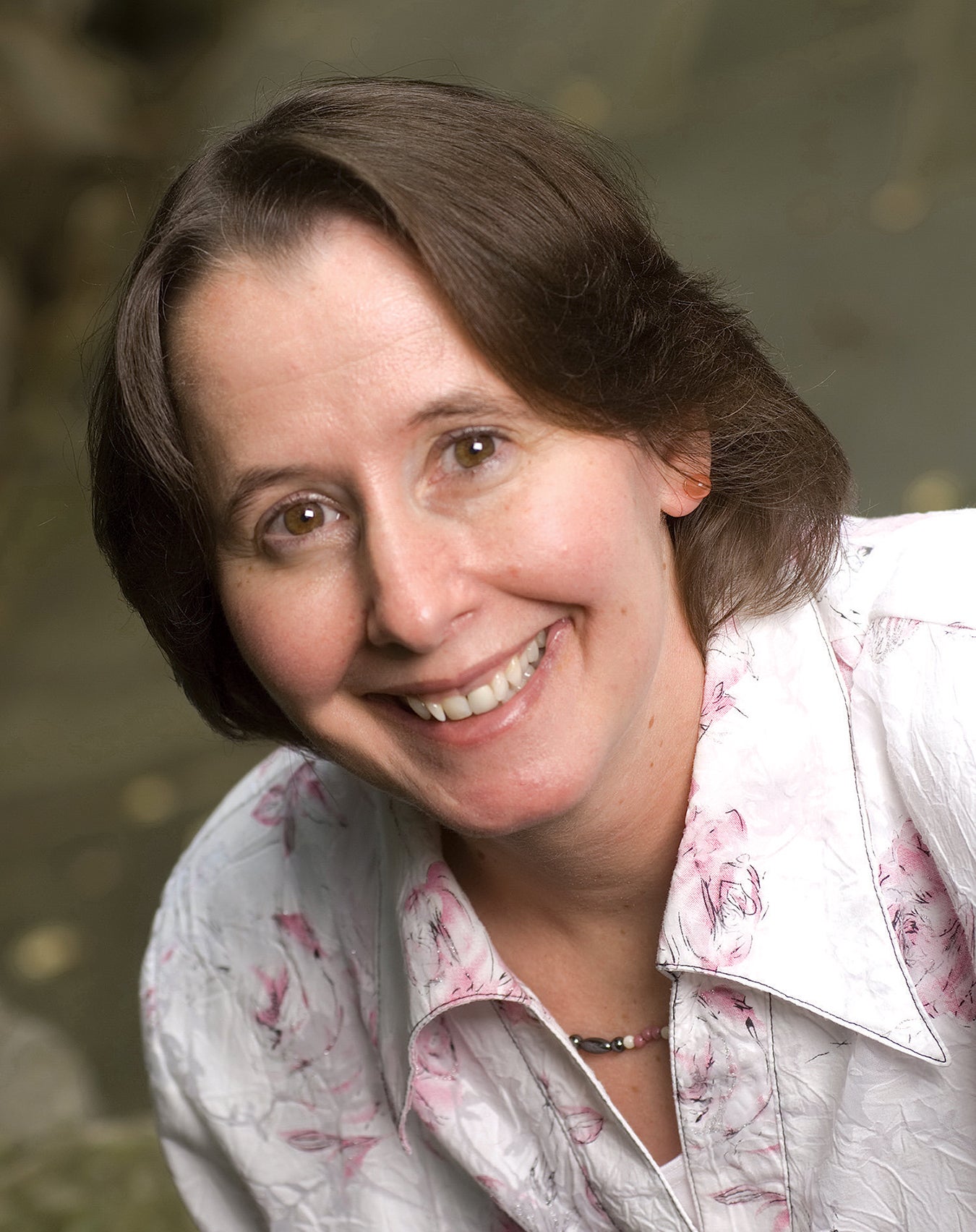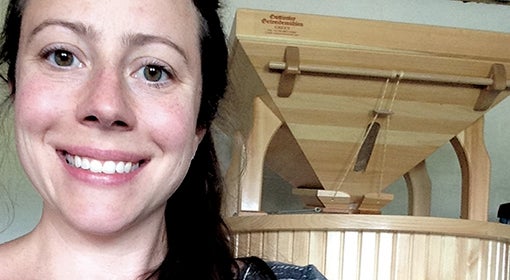 Therese Willkomm watches as the boy stretches his arms across the table toward a plate of food. Despite his best efforts, his limited mobility prevents him from grasping his snack. Willkomm (SHRS ’97) sets to work fabricating a quick solution. Turning to the collection of everyday items in her office, the assistive technology specialist assembles flexible tubing and a spring clip to create a kind of grabber. When clamped to his wheelchair, the tool helps the boy bring food directly to his mouth. After a little practice, he is able to feed himself for the very first time.
Therese Willkomm watches as the boy stretches his arms across the table toward a plate of food. Despite his best efforts, his limited mobility prevents him from grasping his snack. Willkomm (SHRS ’97) sets to work fabricating a quick solution. Turning to the collection of everyday items in her office, the assistive technology specialist assembles flexible tubing and a spring clip to create a kind of grabber. When clamped to his wheelchair, the tool helps the boy bring food directly to his mouth. After a little practice, he is able to feed himself for the very first time.
Willkomm’s specialty is creating low-cost devices to help people with disabilities live full and more independent lives. Known as a “MacGyver” of assistive technology, she uses ordinary materials like duct tape and PVC pipes to make extraordinary equipment—and she teaches her students how to do the same.
Growing up farming in Wisconsin taught her to make do using what was available, encouraging creative problem solving. After college, she earned a master's degree in vocational rehabilitation from Drake College and then worked as an assistive technology specialist in Iowa, helping rural and farm families. Eventually, she wanted to learn new and better ways to help those she serves, so she earned a PhD in rehabilitation science at Pitt.
“The University of Pittsburgh gave me the foundation I needed in materials, in biomechanics, and in engineering principles to create more solutions for people with disabilities,” she says. Today, she is a clinical associate professor in the University of New Hampshire's occupational therapy department and director of New Hampshire's statewide Assistive Technology Program.
“There are always new discoveries, always new challenges,” says Willkomm, who continues to engineer solutions, one problem at a time.
This article appeared in the Winter 2017 issue of Pitt Magazine.




